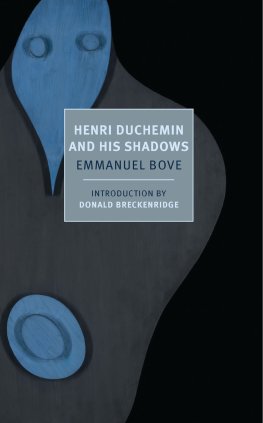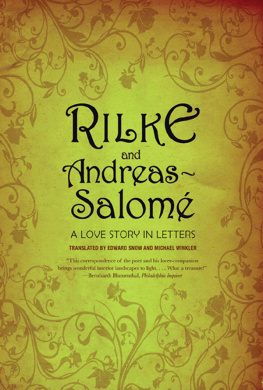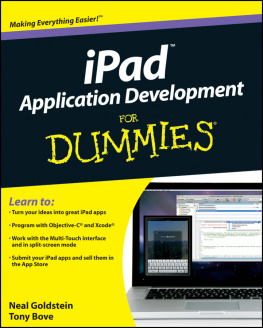Emmanuel Bove
Henri Duchemin and His Shadows
EMMANUEL BOVE (18981945) was born Emmanuel Bobovnikoff to a Jewish migr from Kiev and a Parisian chambermaid from Luxembourg. His childhood was spent in Paris, marked at times by extreme poverty in the company of his mother and younger brother, and wealth in the company of his father and stepmother. With his stepmothers patronage, Bove acquired an education in Paris, Geneva, and, during the First World War, England. Back in Paris, he began writing while supporting himself with a series of odd jobs. He had been publishing popular novels under the pseudonym Jean Vallois for several years when Colette helped him publish the novel Mes amis (My Friends) under his own name. He continued publishing successful novels until the Second World War, at which time he was forced into exile in Algeria. He died of heart failure soon after his return to Paris.
ALYSON WATERSs translations from the French include works by Louis Aragon, Ren Belletto, Eric Chevillard, and Albert Cossery. She is the 2012 winner of the French-American Translation Award for her translation of Chevillards Prehistoric Times. Waters has received a National Endowment for the Arts Translation Fellowship, a PEN Translation Fund grant, and residency grants from the Centre National du Livre, the Villa Gillet, and the Banff International Literary Translation Centre. She teaches literary translation at New York University and Columbia University and is the managing editor of Yale French Studies. She lives in Brooklyn.
DONALD BRECKENRIDGE is the fiction editor of The Brooklyn Rail, co-editor of InTranslation, managing editor of Red Dust, and the author of more than a dozen plays, a novella, and the novels 6/2/95, You Are Here, This Young Girl Passing, and And Then. He lives in Brooklyn.
Emmanuel Bove was a master of hyper-objectivity. His characters, drawn from all classes, are often paralyzed by a failure of will, poisoned by envy, cursed with bad luck or betrayal. With relentless clarity, Bove imparts a deeply felt and lasting impression of the lives of these solitary and emotionally shattered young men whose fortunes and futures hinge on a stroke of luck, an immoral act, an accident. The authors own youth was a harsh one, characterized by instability and discord; and yet, like the lives of his characters, it was occasionally graced by wealth and privilege. Born in Paris in 1898, Bove was the son of a Belgian-born housemaid, Henriette Michels, and an immigrant Ukrainian Jew, Emmanuel Bobovnikoff. Boves father was a largely absent womanizer whose financial contributions to the family were infrequent at best. Bove and his brother, Lon, lived in abject poverty with their mother who moved frequently within the slums of Paris to find work, always shadowed by bill collectors. However, Boves childhood took a decisive turn when his fathers affair with Emily Overweg, a wealthy painter and the daughter of the British consul in Shanghai, led to an unlikely marriage. Sent to live with his father and stepmother, Bove experienced the twilight of belle epoque opulence, while Lon, who would become a doctor, remained with his mother in an unforgiving cycle of grinding poverty. And like the fleeting encounters with fortune that Bove employed in his fiction, this unexpected stretch of good luck would not last.
At the age of eight Bove decided to become a writer and at fourteen, with the financial backing of his stepmother, he was sent to a boarding school in England. The outbreak of the First World War soon disrupted his studies and forced him to return to France. His father succumbed to tuberculosis and his stepmother, whose fortunes had all but evaporated as a result of the war, could offer little assistance. While thousands of young men were dying in the trenches of Somme, Arras, and Verdun, Bove was living in a transient hotela familiar setting for nearly all of his novelsand working menial jobs (busboy, waiter, Renault factory worker, and tram operator) while attempting to write. Before he could be called up, the armistice was declaredone wonders if he missed the opportunity to distinguish himself on the battlefield and pursue an officers career. Instead he spent a month in jail on account of a vagrancy charge aggravated by an anti-Semitic gendarmes inability to pronounce his last name. Thus Bobovnikoff became Bove, and one of the last centurys finest authors was agonizingly birthed from a seemingly endless series of unfortunate circumstances.
Barely in his twenties, Bove married Suzanne Vallois, a young teacher, and they migrated to a suburb of Vienna, where, under the name of Jean Vallois, he attempted to make money writing pulp fiction. Living in postwar Austria might have appeared to be an affordable alternative to France, but rising inflation and economic stagnation quickly devoured what little savings they had managed to relocate with. Vienna did provide Bove with enough distance to approach his craft, yet it offered no financial support for an aspiring writer, his wife, and their daughter. When the money ran out, they were forced to return to Paris. And then, with the help of Colette, who was taken by the wisp of a manuscript this deeply reserved unknown young writer pressed upon her, Bove was able to publish Mes amis (My Friends) under his own name. A thin yet dynamic book that borrowed heavily from the transient hotel years of his late teens, Mes amis remains Boves best-known novel. In it we meet Victor Batonprofoundly lonely, old for his relatively young age, and pennilessand witness him casting about among the destitute in a grim, postwar Paris. Victor is forever idle, emotionally paralyzed, unemployable, and never short on real and imagined slights.
When I wake up, my mouth is open. My teeth are furry: it would be better to brush them in the evening, but I am never brave enough. Tears have dried at the corners of my eyes. My shoulders do not hurt any more. Some stiff hair covers my forehead. I spread my fingers and push it back. It is no good: like the pages of a new book it springs up and tumbles over my eyes again.*
The thin novel Armand followed Mes amis and was very well received. In Armand Bove further expands on the destructive roles of alienation, abject poverty, and disenfranchisement while disseminating a doomed relationship.
The language Bove employed in these early works, and throughout his entire career, is precise and elegant. The urgency in his deceptively simple, pitch-perfect tone lends itself to an immediate intimacy. The precision in his writing evokes landscapes and interiors, emotional and otherwise, that read like high-resolution photographs. And while his craft was forever attuned to the complete storyexploring the motives and complexities that lead his characters to do what they musthe wrote in a simple, everyday language. Boves work is a fine distillation of lived experience expressed with seemingly effortless artistry.
Throughout his brief yet productive career, Bove captured the experience of a lost generation of war veterans. He recorded the odious aftereffects of the November 1918 armistice with its widespread unemployment, and the growing disaffected and largely reactionary working class that was teetering on the brink of revolution. Bove portrayed the young widows burdened with illegitimate sons who grow up into pathetic needy men wrecking havoc on anyone unwise enough to show them a modicum of compassion. He captured bourgeois families grasping at the titles dangling from rapidly diminishing fortunes, and a well-trodden and forever alienating Paris.
At the time of Boves debut, Colette, Andr Gide, Philippe Soupault, Max Jacob, and Rainer Maria Rilke all adored his writing. Samuel Beckett was another early admirer who claimed, Emmanuel Bove, more than anyone else...has an instinct for the essential detail. Considering how obscure his work became after his death, it is hard to imagine Bove as a literary star, yet he was a successful and productive author in the 1920s and 30s. While he avoided the spotlight that came with fame, his writing had a profound influence on many authors during his lifetime, and later on those writing after the Second World War. Bove informed Albert Camuss humanistic preoccupations; Claude Simons elegant details and the obsessive autobiographical accounting that drive his novels; Nathalie Sarrautes delicate and intimate precision; and the bleak humor and disparaging, otherworldly hopelessness of Becketts contributions to the theater of the absurd.












